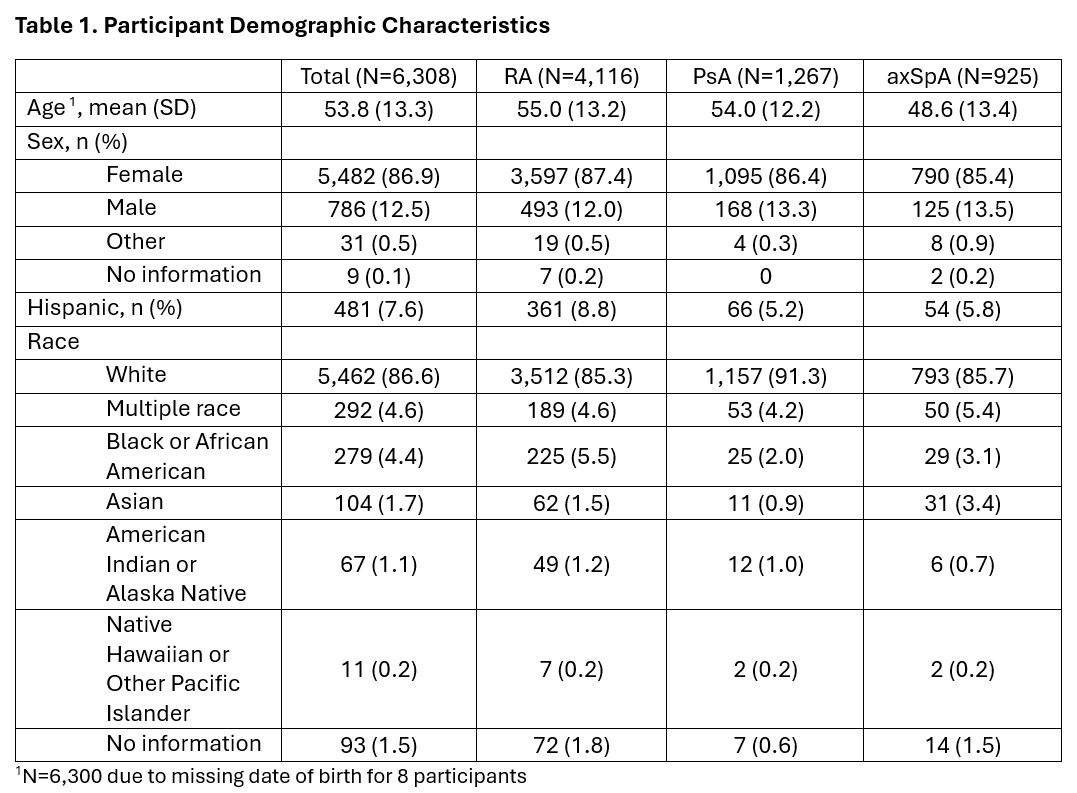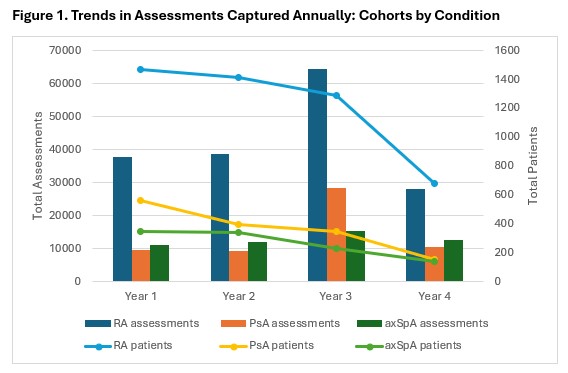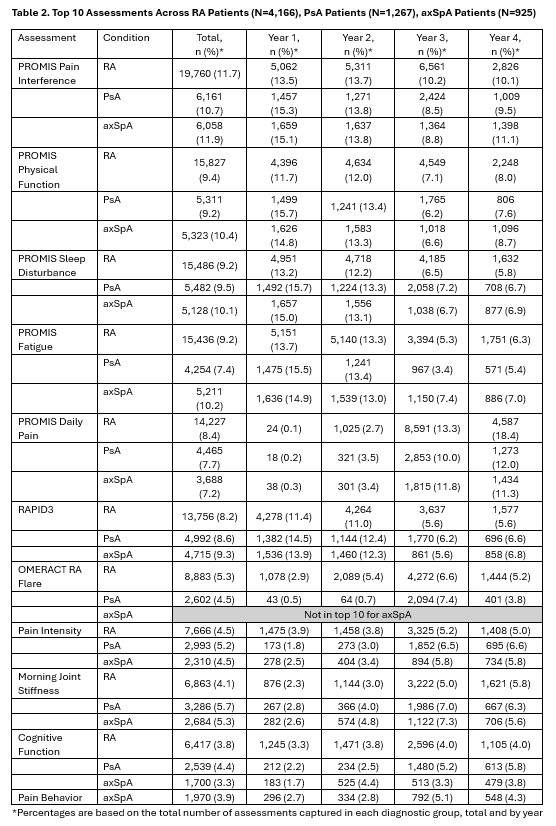Session Information
Session Type: Poster Session B
Session Time: 10:30AM-12:30PM
Background/Purpose: Understanding the impact of inflammatory arthritis from patients’ perspectives through patient-reported outcomes (PROs) data can provide valuable insights into outcomes prioritized by those living with these conditions, and guide goal setting and treatment that is more personalized. We retrospectively analyzed PRO reporting over a 4-year period, which included the COVID-19 pandemic, to understand if PRO selection differed across the 4 years and if there were selection differences between rheumatoid arthritis (RA), psoriatic arthritis (PsA), and axial spondyloarthritis (axSpA) diagnoses.
Methods: Upon joining the PatientSpot research registry, patients with axSpA (including ankylosing spondylitis and non-radiographic axSpA), PsA, and RA were invited to select PRO symptom measures that they felt were important to digitally track for their condition via health assessments in the registry. Tracked assessments could be changed at the discretion of the patient. Assessments included but were not limited to domains assessing pain and its impact on activity, physical function, sleep disturbance, fatigue, social isolation, and mental health.
Results: A total of 6,308 patients with the specified conditions provided 277,574 PROs across four years from June 1, 2020, to May 31, 2024. Of those, 65.3% reported having RA, 20.1% PsA, and 14.7% axSpA. Out of the total assessments captured, Year 3 (6/1/2022 – 5/31/2023) had the most completed assessments (39.1%) compared to the other years, despite seeing a decline in total patients contributing assessments (Figure 1). The most used assessments across the 3 conditions were PROMIS Pain Interference (11.5%), Physical Function (9.5%), and Sleep Disturbance (9.4%) (Table 2). Notably, the OMERACT RA flare instrument was also used among PsA patients, with 4.5% of PsA patients reporting on flares captured via the RA Flare assessment.
Conclusion: The increase in assessments in Year 3 may indicate changes in healthcare practices or disease management strategies that resulted from the COVID-19 pandemic, such as increased utility of telehealth and remote monitoring. These practices may have led to changes in how patients manage their health condition, underscoring the need to better understand PROs and their utility. PROMIS Pain Interference, Physical Function, and Sleep Disturbance were the most selected measures across the three conditions, indicating the need for more targeted pain management strategies that address patients’ mobility and sleep. The use of the OMERACT RA flare instrument by PsA patients underscores its broader perceived applicability in capturing disease activity and flare-ups in other types of inflammatory arthritis, and the need for disease-specific flare assessment tools. Understanding the impact of inflammatory arthritis from the patient’s perspective through patient-reported outcomes data provides valuable insights into the daily challenges and quality of life issues that patients face and can provide valuable insights for optimizing patient care and guiding future research on arthritis management.
To cite this abstract in AMA style:
Venkatachalam S, Gavigan K, Stone E, Degrassi A, Stradford L, Curtis D, Rivera E, Curtis J. Patient-Reported Outcomes in Inflammatory Arthritis: A Four-Year Retrospective Analysis via the PatientSpot Research Registry [abstract]. Arthritis Rheumatol. 2024; 76 (suppl 9). https://acrabstracts.org/abstract/patient-reported-outcomes-in-inflammatory-arthritis-a-four-year-retrospective-analysis-via-the-patientspot-research-registry/. Accessed .« Back to ACR Convergence 2024
ACR Meeting Abstracts - https://acrabstracts.org/abstract/patient-reported-outcomes-in-inflammatory-arthritis-a-four-year-retrospective-analysis-via-the-patientspot-research-registry/



